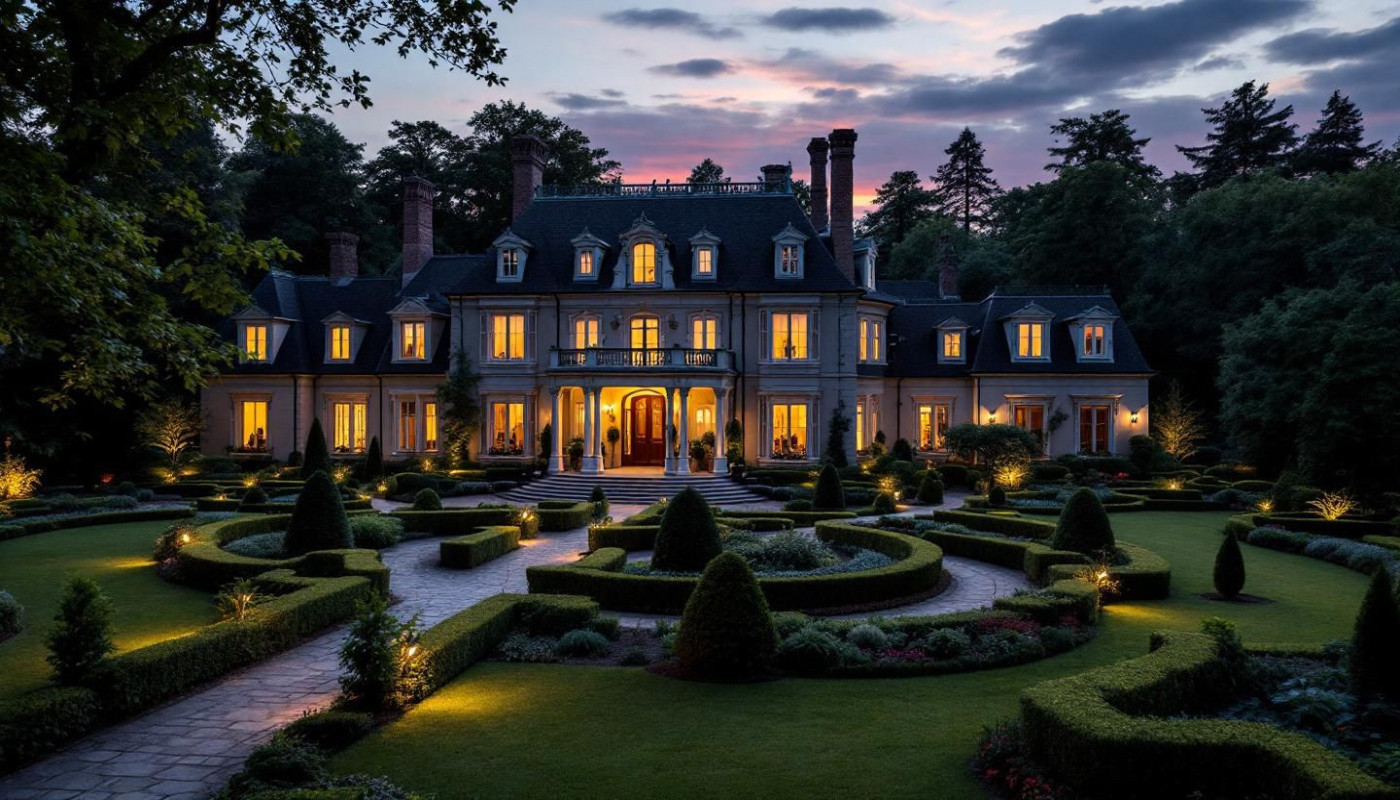Table of contents
There is a unique allure to investing in luxury properties, drawing both seasoned investors and newcomers seeking portfolio diversification. Delving into this exclusive market requires understanding its distinct dynamics, benefits, and potential pitfalls. Discover the strategies, risks, and rewards that come with luxury real estate and find out what makes this sector a compelling choice for sophisticated investors.
Understanding luxury property markets
The luxury real estate market is distinguished from standard property sectors by several defining characteristics. Foremost among these is the focus on high-value locations, such as prime city centers, prestigious suburban enclaves, and coveted waterfronts, where exclusive properties command premium prices and offer unmatched amenities. Such exclusivity is a direct result of limited supply combined with strong luxury home demand from affluent buyers seeking privacy, security, and unique architectural features. In these environments, factors like renowned school districts, proximity to cultural hubs, and scenic views further elevate property values and desirability.
Unlike mass-market housing, the luxury housing trends are heavily influenced by fluctuating economic conditions, global wealth flows, and shifting lifestyle preferences. For example, the emergence of remote work has increased interest in spacious estates with advanced home offices, while international buyers may prioritize cities known for financial stability and cultural prestige. Pricing in this sector is particularly sensitive to changes in buyer sentiment and global events, making it essential to conduct a thorough comparative market analysis before any investment decision. Expertise in niche markets enables professionals to accurately assess the impact of micro-trends, such as architectural design shifts and new luxury development projects, ensuring that investors are well-positioned to capitalize on opportunities within the exclusive realm of luxury properties.
Key factors in valuation
Luxury property valuation involves rigorous assessment of several interconnected criteria that go beyond conventional real estate metrics. High-end real estate appraisal starts with architectural significance, where properties designed by renowned architects or reflecting historical importance command higher values. The presence of exclusive luxury amenities—such as private spas, infinity pools, or advanced home automation—substantially boosts desirability and market value. Another essential criterion is prestige location; proximity to cultural landmarks, scenic views, elite neighborhoods, and robust security are all pivotal in this segment. Unique property features, like custom interiors, rare materials, or expansive grounds, further set luxury assets apart, making each valuation a tailored process. The complexity of appraising such properties is heightened by their rarity and the need to evaluate the highest and best use, often requiring bespoke analysis from certified valuers. Professional expertise ensures that all tangible and intangible attributes are considered for an accurate market estimate. For those interested in advanced research or toolsets in this area, why not try this out, which delves into conceptual frameworks relevant to property analysis.
Investment strategies for success
When considering luxury property investment, selecting the right real estate investment strategies is fundamental to maximizing returns. Popular approaches include buy-to-let, where investors purchase high-end homes or apartments to generate steady luxury rental income, and flipping, which involves acquiring properties below market value, enhancing them, and reselling for profit. Another method is the long-term hold, which focuses on capital appreciation by benefiting from the property’s value growth over several years. Effective risk management is vital in this sector due to market volatility and higher entry costs. Conducting thorough property due diligence—analyzing location trends, legal factors, and potential rental demand—reduces exposure to unforeseen liabilities and ensures informed decision-making. Combining a strategic investment approach with careful risk assessment can lead to sustained success in the luxury real estate market.
Legal considerations and regulations
Investing in luxury real estate demands a thorough understanding of luxury property laws and real estate regulations, as they can greatly impact both purchase and ongoing ownership. Buyers should conduct a title search to confirm clear ownership and identify any legal encumbrances. Zoning laws affect how luxury homes can be used or renovated, while local and international tax on luxury homes may influence overall cost and profitability. Property ownership structure is another vital factor—options such as individual ownership, trusts, or corporate entities each carry distinct legal and tax consequences. Cross-border property purchase introduces complexities, with regulations differing between jurisdictions, requiring attention to foreign investment restrictions, mandatory disclosures, and repatriation of funds. Legal challenges can arise from disputes over property boundaries, inheritance laws, and compliance with anti-money laundering statutes. Consulting a leading real estate attorney with expertise in luxury transactions ensures compliance and minimizes risk, safeguarding the investment from unforeseen legal pitfalls.
Emerging trends and future outlook
Luxury property trends are rapidly evolving, reflecting both technological advancements and shifting buyer expectations. Sustainable luxury homes have become increasingly popular, with eco-friendly materials, energy-efficient systems, and green certifications now standard features sought by discerning buyers. Smart home technology is another major influence, as buyers expect integrated security, automation, and lifestyle enhancements that blend seamlessly with contemporary design. Luxury home buyer trends indicate a growing preference for wellness amenities, private outdoor spaces, and flexible living areas to accommodate remote work or multi-generational living. The market forecast suggests continued expansion in these segments, with global demand for sustainable and technologically advanced properties projected to rise. Investors can anticipate that future luxury real estate will focus on innovation, environmental responsibility, and personalized experiences, making adaptability and awareness of these trends vital for success.
Similar

The Role Of Leadership In Guiding Successful Investments

How Visionary Leaders Shape The Future Of High-End Property Markets?

Effective Digital Marketing Tactics For Increasing Website Traffic

Exploring The Benefits Of Recurring Donations For Nonprofits

How Does Paying Tourist Tax Contribute to Destination Sustainability?

Vulkan Vegas Casino: An undisputed leader in online gaming security and diversity

